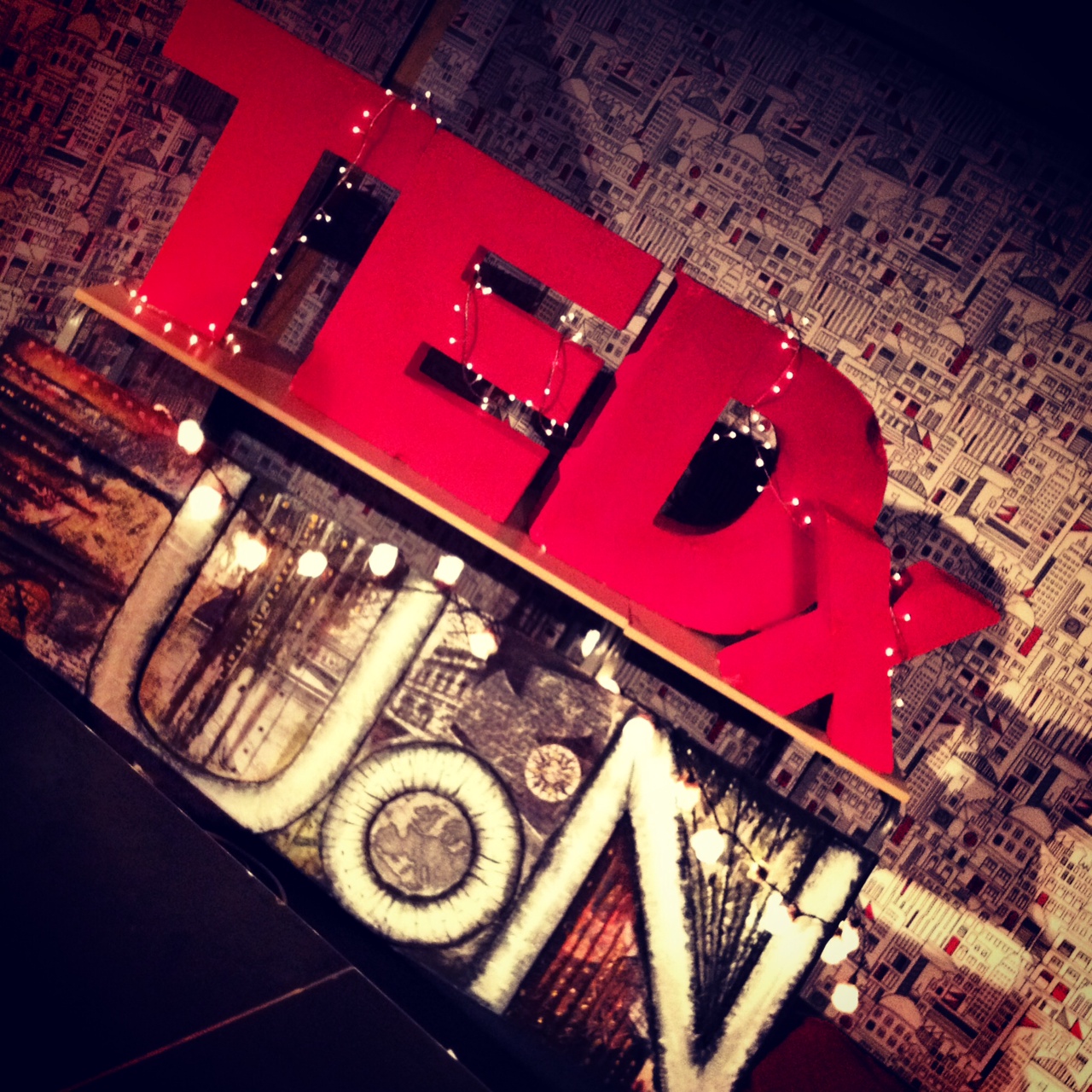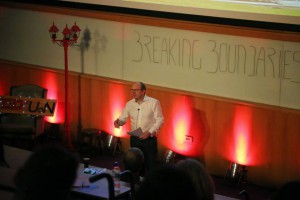
April 14, 2015, by Herve Morvan
TEDx – Inspiring People: Aerospace Research with Impact
I was recently invited to give a talk at a University of Nottingham TEDx event. It was a great honour but also a great pleasure to deliver such a talk on my experience of leading the development and coordination of a multidisciplinary research agenda within the field of aerospace and in support of its industry…
TED stands for Technology, Entertainment and Design. TED is a nonprofit organisation, which started as far back as 1984, devoted to spreading ideas, usually in the form of short, powerful talks (18 minutes or less); independently run TEDx events help share ideas in communities around the world. TED’s mission statement is captured in the phrase (also the organisation’s motto), ‘ideas worth sharing’.
The principle I explored on March 15th was the need for research to be collaborative and multidisciplinary in order to tackle the challenges faced by the aerospace industry and deliver innovation to the sector.
The word innovation is often used at present. A good and pragmatic definition for it is ‘the successful exploitation of technology’ and, I would argue, more broadly, of knowledge and methods. Delivering innovation therefore means producing leading academic research but also enabling its deployment to benefit society and industry. I am not alone in making that point [on the merit of deploying knowledge and technology]. Joy Ito, the Director of the MediaLab at MIT, coined the phrase ‘deploy or perish’, in an IT context, at another TEDx talk last year, by opposition to the traditional ‘publish and perish’.
There is still room and in fact a need for publications. Publications are academia’s base capital and the quality of publications is as strong as it ever was. However, a publication as a deliverable is not sufficient anymore. A research project needs to stretch beyond academia. The need for research to reach out to the community and to deliver true impact to the funding authority and beyond is now of prime significance and importance. This has always been central to research carried out in collaboration with industry, something which Nottingham is strong at, through a number of industry supported laboratories but also through vehicles such as the Institute for Aerospace Technology (IAT) for example. This has become far more important for institutional funders, as visible with the EPSRC Impact Acceleration Account, as part of REF2014 , and as stated by the current British government since it came to power. Engaging in research with a practical finality, or connecting research to societal and industrial challenges, has clear merits. This is not incompatible with research quality and offers a solid grounding or anchor into society and industry for academia, with a ‘return on investment’ to benefit those who support research clearly.
A research project requires a whole life cycle approach; from original broad ranging ideas to execution, exploitation and impact. Creativity is required in the formulation of a more comprehensive proposal from the start, one that goes beyond the engineering science at its core, not least because projects are getting fewer and larger and concerned with larger systems issues (i.e. interconnections and dependencies which require strong links, multidisciplinarity and, often, some form of system level optimisation), in particular in Europe through Horizon 2020 for example, but also because of the clear aspirations expressed by the funders for research to deliver visible change and progress, and, where possible, wealth. The execution of a research programme needs to aspire to innovation. The exploitation of the research work still relies on world-leading engineering science leading to high quality publication (universities traditional ‘currency’) but also impact. This holistic approach is one that the IAT is championing. The IAT does so through the formulation of a strong aerospace strategy for The University of Nottingham, not only in accordance with industry and EU and UK ambitions, but through the delivery of large, multidisciplinary grant programmes building on the University groups’ research excellence, leading to research impact. What is important is to find that balance between research quality and innovation, between delivering quality and insightful academic output and creative ideas and solutions to industry.
As I write those lines the IAT has successfully engaged with the new Horizon 2020 Clean Sky 2 programme (which is application-driven and reliant on an integrated approach) and is developing an Innovation Programme which will result in an Multidisciplinary Aerospace Research Challenge for researchers at all career stages in May 2015, which will culminate in the form of an industry-supported Dragons’ Den event.
Back to the TEDx event; it was very pleasing to see such a strong attendance to this event organised by University of Nottingham students. The energy and appetite shown by the audience was contagious and delightful to watch. I enjoyed the afternoon of talks very much. The same energy and appetite are shared by the IAT team. We are living in some of the most interesting times for the aerospace sector and we are looking forward to sharing our ideas and contributing our research to our partners and the wider community to support its aspiration for greater mobility.
Supporting references:
IAT: http://www.nottingham.ac.uk/aerospace/about/introduction.aspx http://www.su.nottingham.ac.uk/societies/society/tedxuon/
Horizon 2020: http://ec.europa.eu/programmes/horizon2020/
Clean Sky: http://cleansky.eu/category/tags/clean-sky-2
EPSRC Impact Acceleration Accounts: http://www.epsrc.ac.uk/newsevents/news/impactaccelerationaccounts/
The IAT MARCh programme: http://www.nottingham.ac.uk/aerospace/research/aerospace-research-challenge.aspx
No comments yet, fill out a comment to be the first


Leave a Reply